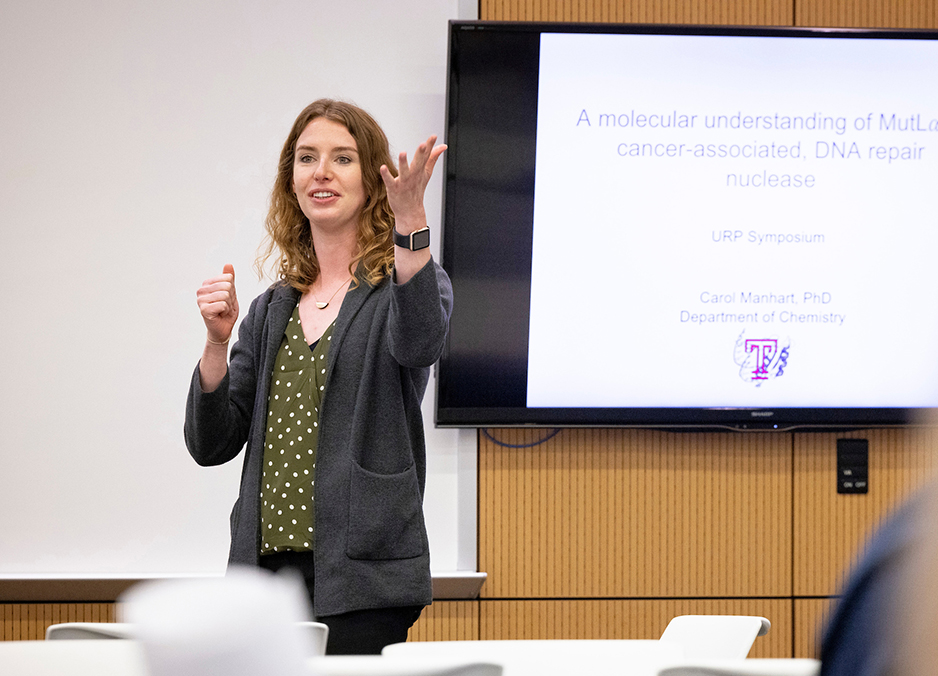Carol Manhart, assistant professor of chemistry at Temple University, has earned a five-year National Institutes of Health (NIH) Maximizing Investigators Research Award to study how proteins repair DNA in cells. Unrepaired DNA can lead to diseases in humans such as cancer.
“DNA repair is a naturally occurring process in organisms,” said Manhart. “In humans, DNA repair operates, in part, to prevent disease such as cancer. In turn, when DNA repair proteins fail to do their jobs, diseases can develop, such as Lynch syndrome, an inherited disorder that increases the risk of cancers, particularly colorectal cancer.”
Manhart’s research aims to understand how the DNA repair proteins know what to do and when to do it. “We want to understand how the repair proteins find DNA errors and fix them while simultaneously not affecting undamaged DNA by mistake,” she said.
The research isolates DNA repair proteins and rebuilds DNA repair reactions to understand how they work “without all of the cellular clutter” that can mask important parts of the reactions. “By doing this, we can break down DNA repair into steps and determine how failures in each step may contribute to disease,” said Manhart, who joined the chemistry department in 2018. “We can also identify how we might improve each step, which has applications in therapeutic and biotechnological design.”
Functional bits of DNA with particular combinations of base pairs are called genes. The human genome, says Manhart, “is essentially a code billions of units long. Mistakes in the code can be the source of diseases. The fact that errors in the code are really rare is amazing to me! Cells have developed a very specialized system for finding errors in the code and making sure that they get fixed.”
Said Manhart, “Understanding the elegance and efficiency of biological systems at the molecular level has inspired me as a scientist and compels my work in the lab.”
Manhart previously received a National Research Service Award from the NIH for her work in this field. Last year, she was selected to write a chapter for the Encyclopedia of Biological Chemistry titled “DNA Mismatch Repair in Mammals.”

